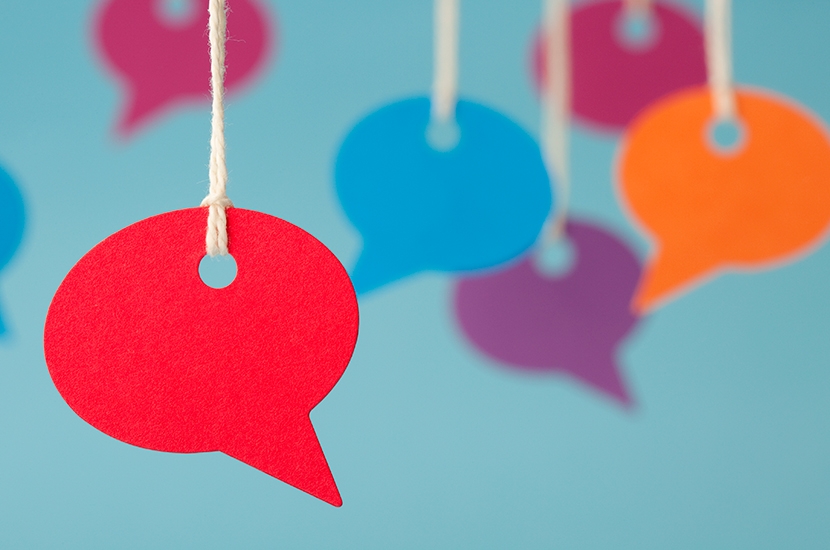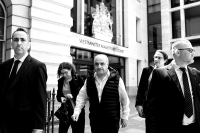When Humza Yousaf, the SNP’s cabinet secretary for justice, announced that his new Hate Crime Bill would remove the ‘dwelling exemption’ in the Public Order Act 1986, people were understandably horrified. As things stand, you cannot be prosecuted for stirring up racial hatred because you’ve said something inflammatory about race or religion in the privacy of your own home. But that’s far too wishy-washy for Yousaf. Not only does he want to enlarge the number of ‘protected’ groups, he also wants the new speech restrictions to apply in people’s homes. Henceforth, Big Brother will be watching you in the kitchen and the bedroom.
If Humza Yousaf has his way, there will be less free speech in Scotland than anywhere else in Europe — but not for long. The Law Commission of England and Wales has proposed that we pass a similar law. Actually, I say ‘similar’ but in some respects the Commission’s proposals are even worse. Andrew Tettenborn, a law professor at Swansea University, describes the 533-page ‘consultation’ as ‘the Scottish Hate Crime Bill on steroids’. For instance, the Commission wants to make ‘sex and gender’ protected characteristics. It proposes that a vast array of groups and subcultures should be given similarly special status, including ‘migrants’, ‘asylum seekers’, ‘asexuals’, ‘non-binary people’, ‘cross-dressers’, ‘goths’, ‘punks’ and ‘sex workers’. And it wants to ban ‘inflammatory cartoons’, particularly ‘Islamophobic cartoons’. Talk about handing a victory to terrorism!
One of the ironies of these proposals is that criminalising hate speech won’t actually reduce the incidence of hate crime. In almost every country where similar laws have been enacted, hateful behaviour has increased in the immediate aftermath. The further you stray from the principle of equality before the law — by designating certain groups legally ‘protected’ and others not — the more division you create. As President Obama said: ‘The strongest weapon against hateful speech is not repression; it is more speech.’
Earlier this week, I tried to explain to my four children why this new anti-free-speech law would have such a catastrophic effect on social cohesion. Their eyes glazed over until I got to the bit about the Law Commission wanting to scrap the ‘dwelling exemption’, just like Humza Yousaf. ‘If this becomes law, one of you could call the police and have me arrested if I call your mother a whore,’ I said. ‘Not that I would, obviously, but you get the point.’
They got the point all right. Suddenly, they began rubbing their hands with glee.
‘So how much will you pay me not to tell the police what you’ve said about Black Lives Matter?’ asked my 13-year-old son Freddie.
I began to explain that nothing I’d said about the unashamedly Marxist group which wants to defund the police came remotely close to an offence under the Public Order Act, when I was forced to reconsider. After all, if Darren Grimes can be investigated by the Met for ‘stirring up hatred’ against black people simply for publishing an interview with David Starkey, maybe the police would be interested if Freddie told them my views of BLM. That is, if the Law Commission gets its way and you can be charged with ‘hate speech’ for something you say in private and not just in public.
My hesitation was fatal. As soon as they sensed weakness, they all piled in. My 15-year-old son demanded a new ‘gaming PC’; my 17-year-old daughter said she would now ignore the rule that she can’t get a tattoo until she’s 18; 12-year-old Charlie said if I knew what was good for me I’d trot along to the shop and buy him a bar of Cadbury’s Dairy Milk. ‘Actually, better make it two, Dad,’ he said. ‘I haven’t forgotten what you said about that woman on Love Island.’
No doubt the Met wouldn’t take all these ‘hate crime’ reports seriously, but policing what people say to each other in their homes is a hallmark of totalitarianism. In the Soviet Union, it was this feature of life which made parents terrified of their own children. As one old Russian woman told the historian Orlando Figes: ‘We were brought up to keep our mouths shut. “You’ll get into trouble for your tongue” — that’s what people said to us children all the time. We went through life afraid to talk. Mama used to say that every other person was an informer. We were afraid of our neighbours, and especially of the police.’







Comments